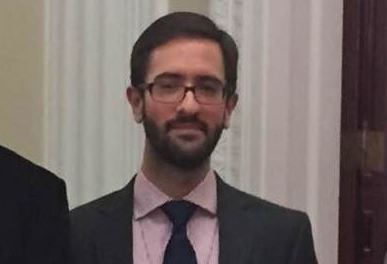In a recent report by investigative journalist Paul Sperry, it has been claimed that Mark Zaid, the attorney representing Eric Ciaramella—the individual known as the whistleblower behind the Ukraine impeachment inquiry—has recommended that Ciaramella leave the United States starting January 20, 2025. This advice appears to stem from concerns regarding potential retaliation from President Donald Trump, who may return to power following the upcoming elections. Ciaramella, who has been associated with the Carnegie Endowment for International Peace, has found himself at the center of political turmoil ever since his actions helped trigger Trump’s first impeachment. This revelation of potential flight from the U.S. underscores the contentious political environment surrounding this high-profile case and the deep divisions that continue to permeate American politics.
Ciaramella’s pivotal role in the impeachment saga arose when he reported a call between President Trump and Ukrainian President Volodymyr Zelensky, alleging that Trump engaged in a scheme to solicit foreign interference in the upcoming 2020 election. The Democrats contended that Trump leveraged military aid to Ukraine in exchange for an investigation into the business dealings of Joe Biden’s family. However, critics argue that these claims have been grossly exaggerated; the military aid had been provided three weeks ahead of schedule, and there was no evidence of a direct exchange or “quid pro quo.” Furthermore, it’s important to note that Ciaramella was not on the call viewed as problematic; instead, it is believed he obtained the call’s details through a leak from Lt. Colonel Alexander Vindman, who was in attendance.
The backdrop of Ciaramella’s allegations paints a picture of an entrenched resistance among certain operatives within the government against President Trump. Reports suggest that shortly after Trump’s inauguration in January 2017, Ciaramella was overheard discussing plans to remove Trump from office with Sean Misko, another staffer at the National Security Council. Both Ciaramella and Misko were found to have been unhappy with Trump’s “America First” policy, which they believed contradicted their globalist agenda. Instead of accepting the election results, they opted to pursue a path that involved undermining Trump’s presidency, which they believed warranted extreme measures.
The ties between Ciaramella and congressional figures involved in the impeachment proceedings further complicate the narrative. Democratic Congressman Adam Schiff, who played a significant role as one of the impeachment managers, had hired Misko the day after the troubling phone call between Trump and Zelensky. Schiff’s refusal to address questions regarding the coordination between his aides and Ciaramella has fueled suspicions surrounding the integrity of the impeachment process. Many observe these connections as part of a broader strategy that some elements of the Democratic Party employed to challenge Trump’s legitimacy and authority, revealing a concerted effort to delegitimize his presidency.
Aside from the political implications, Zaid’s communications and his previously admitted intent to orchestrate a “coup” against Trump have raised eyebrows and suggested a troubling aspect of contemporary legal and political maneuvering. The implications of Zaid’s actions and advice to Ciaramella are indicative of a larger mindset among certain factions within the government, aiming to remove or neutralize Trump regardless of constitutional processes. This approach has instilled fear among those within the current administration regarding potential retaliatory actions, albeit hypothetical, if Trump were to regain the presidency.
Ultimately, the saga surrounding Eric Ciaramella serves as a potent reminder of the polarized state of American politics, wherein whistleblower status can become a contentious label used to fuel partisan battles. The division of public opinion, coupled with the emergence of so-called “insubordinate underlings” within government ranks, raises vital questions about the behavior of public servants and the ethicality of political engagement in a democracy. With the countdown to January 2025 and its potential implications continuing to loom large, the contours of the political landscape will likely keep shifting, driven by the legacies of both Trump and the impeachment efforts that sought to displace him from power.

